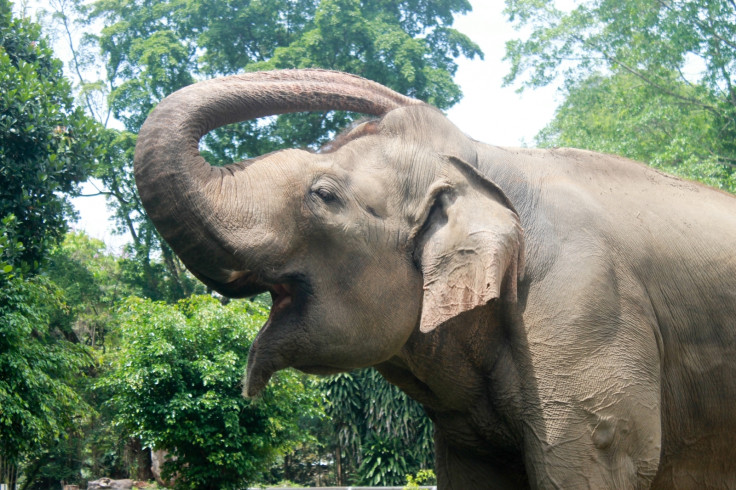Elephant rips handler into two after being made to work in hot weather
The elephant had to be sedated before its handler's body could be recovered from the plantation.
An elephant ripped its handler in half after being made to continue to work in the hot weather at a rubber plantation in the Phang Nga province of Thailand, according to police.
The elephant, Pom Pam, stabbed its 32-year-old handler, Supachai Wongfaed, with its tusk before ripping him into two pieces.
Wongfaed's body was discovered by local police lying in a pool of blood. The elephant was shot with a sedative before its handler's body could be retrieved. The police said that the hot weather may have made Pom Pam "go crazy" and attack.
However, environmental social scientist Niki Rust says that elephants do not become aggressive in hot weather. She added that a short supply of food and water caused by climate change may lead to conflicts.
"What does happen is that wildlife becomes more desperate for food and water as climate change affects the things that they depend upon to survive," Rust said.
The latest incident comes a month after an elephant stabbed its handler to death and stood over his corpse for hours in Nakhon Sri Thammarat province. Police said that the elephant in this particular instance was stressed from work.
"[It] is yet another stark reminder that Asian elephants are and always remain wild animals that can attack and kill when they are abused or overly stressed by humans," Duncan McNair, CEO of the charity Save The Asian Elephants, told Newsweek.
Despite the number of laws in place to protect the creatures, around 60% of the elephants in Thailand are kept in captivity, most of which are employed in the tourism industry. Some are even made to do hard labour even though there is a law which bans people from using elephants to carry logs.
According to the Save The Asian Elephants organisation, they have already recorded close to 2,000 human deaths and severe injuries caused by captive elephants. Likewise, the number of elephants being killed due to human-animal conflict has also increased over the years.

© Copyright IBTimes 2024. All rights reserved.






